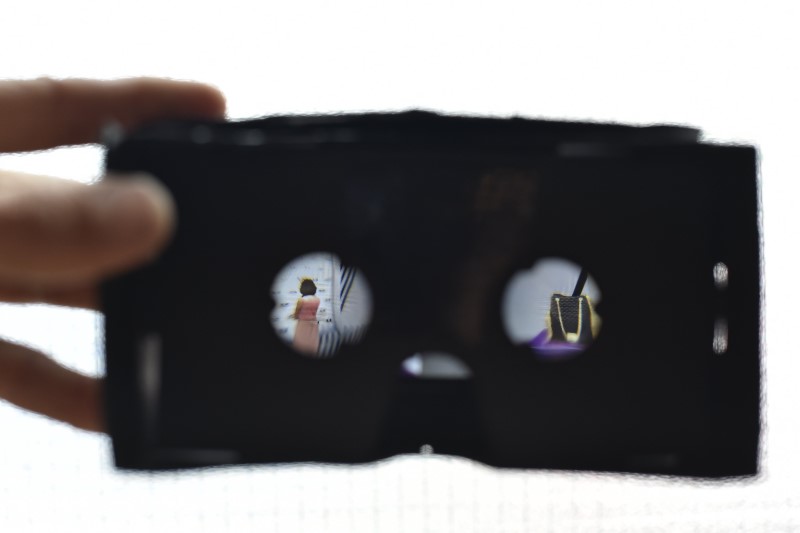By Li-mei Hoang
LONDON (Reuters) - Hrvoje Prpic is wandering through a fashion boutique trying to pick out a new accessory. Only he's not actually there. He's sitting in a trendy London coffee shop wearing a virtual reality headset that he believes could be the future of online shopping.
The 43-year-old is the founder of Trillenium, a start-up that creates virtual stores for brands aimed at marrying the experience of real-life shopping with the convenience of e-commerce on smartphones and computers.
Shoppers can tour the virtual store by focusing their gaze on products, browse items from different angles and socialize with friends online, bringing to life an e-commerce industry currently dominated by search boxes and static pictures.
"The current dot.com experience is pretty sterile. So if they can improve the experience, you might dwell a bit longer, spend a bit longer online exploring products because you can get closer to them, and buy more," said Dave Evans, commercial director at Kantar Retail Virtual Reality, which uses virtual reality technology to help retailers develop real-world stores.
Trillenium hopes to capitalize on the release of virtual reality headsets next year aimed at the consumer market, such as Facebook's Occulus Rift and Google's Cardboard.
And with British online retail sales forecast to surge 64 percent to 71.2 billion pounds ($110 billion) between now and 2020, according to researchers Mintel, Trillenium believes there will be no shortage of companies looking to improve their online businesses.
It has already attracted the attention of one of Europe's biggest online retailers, ASOS (LONDON:ASOS), whose venture capital arm holds a 9 percent stake, as well as British tennis player Andy Murray, who invested through crowdfunding platform Seedrs.
Prpic, who has previously run a computer retail chain in Croatia and invested in a number of start-ups, believes Trillenium's technology will particularly appeal to women.
"Women like to discover," he told Reuters. "How women like to shop is that they want to see something, they want to spot something on the shelf nobody has seen before."
Trillenium is currently working on a demo for ASOS to be trailed at the end of this year, with Prpic saying his aim was for at least half of ASOS's 88 million unique users to eventually use the service.
Brands listed on the ASOS website will be able to pay to feature their products in the virtual store built by Trillenium. A more limited version, without the full 3D offering provided by the goggles, will be available on smartphones and computers.
The technology is still in its early stages, but Prpic believes it will be taken on by other firms in the coming years.
"We do have some clients that are interested in having Trillenium as well, but we are aiming only at the biggest for now. So there are maybe three or four names that we want to have, but not more than that," he said.
Trillenium has raised 335,000 pounds so far from Seedrs as well as two business angel investors. It hopes to raise an additional 1.8 million pounds in separate funds from venture capitalists.
In three years, Prpic hopes to launch a multiple platform service where clients can use his technology to build and customize their own stores from a template.
"This is the end goal," he said.

($1 = 0.6480 pounds)